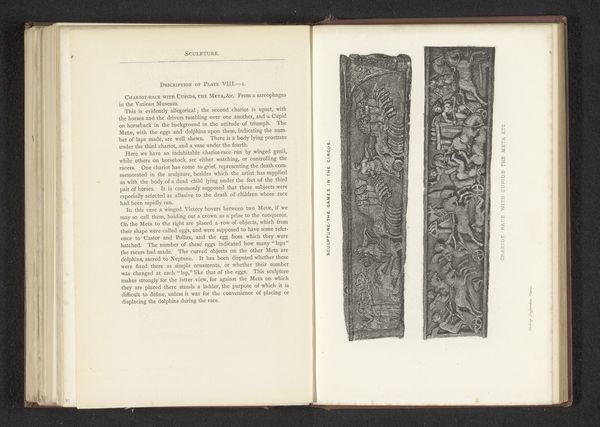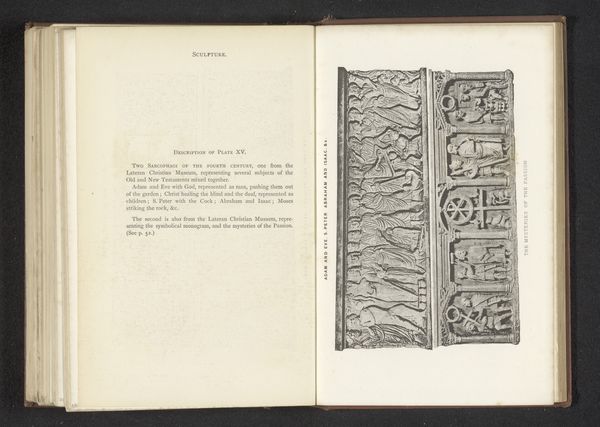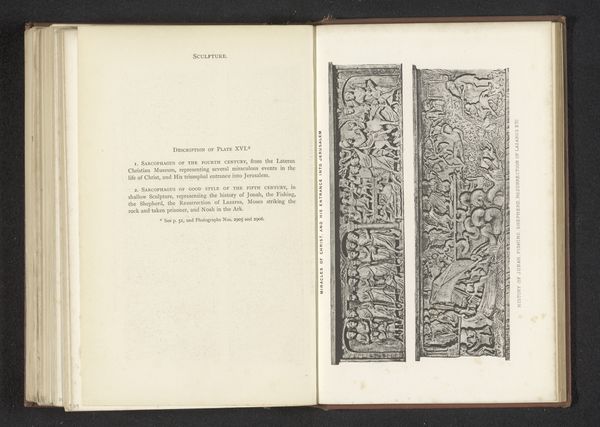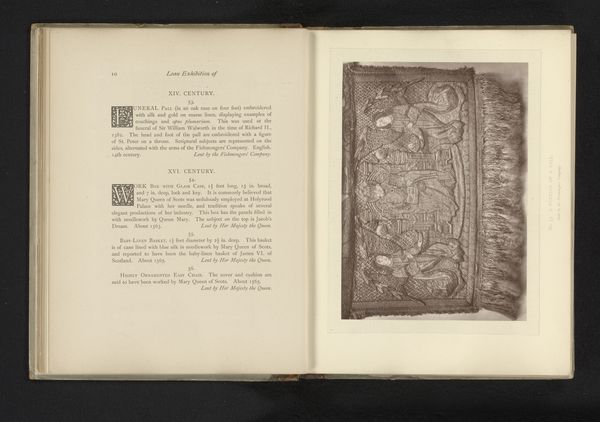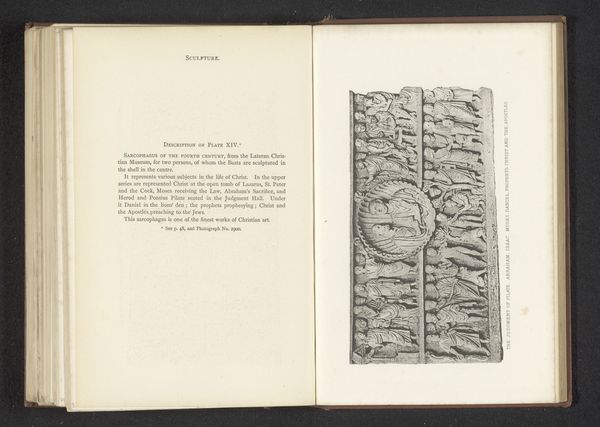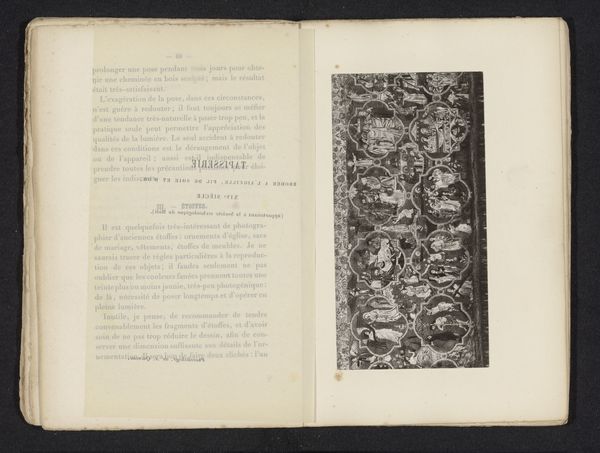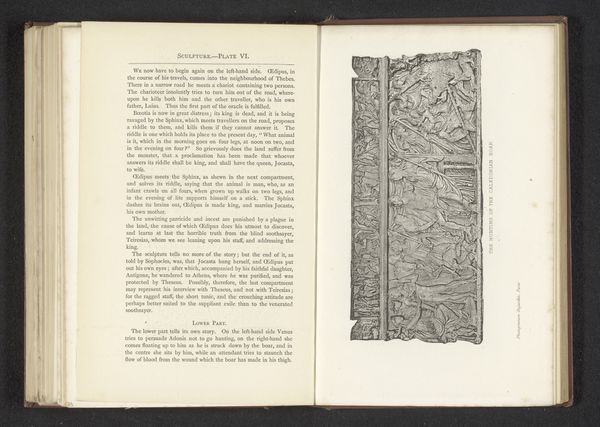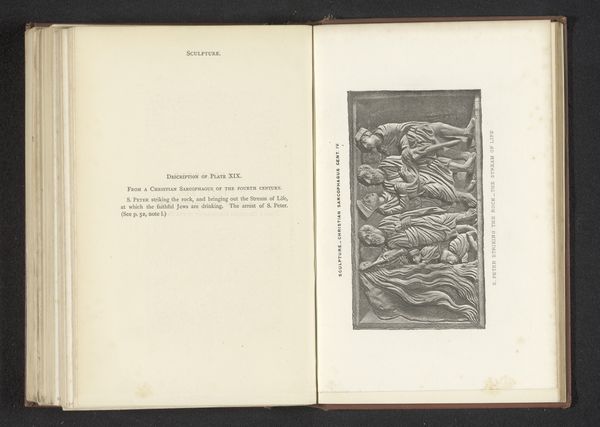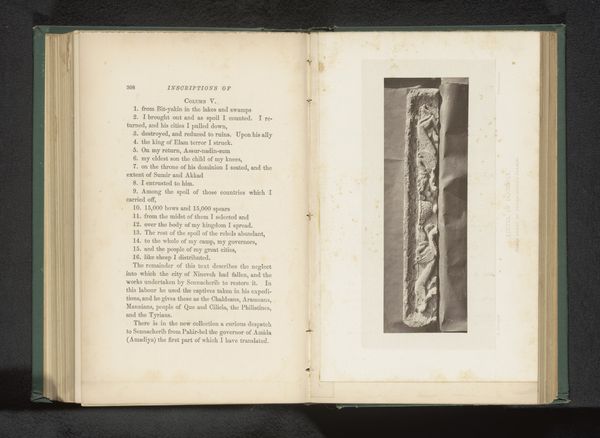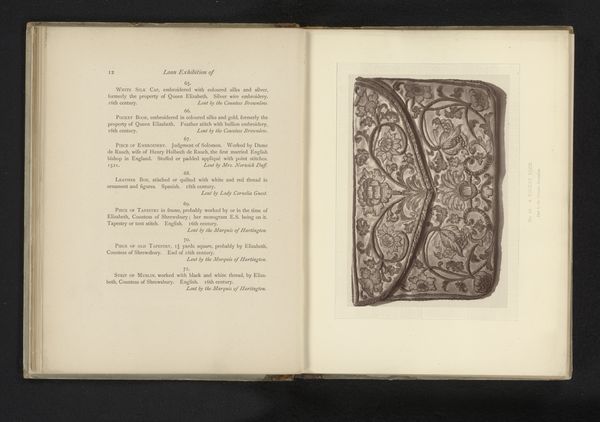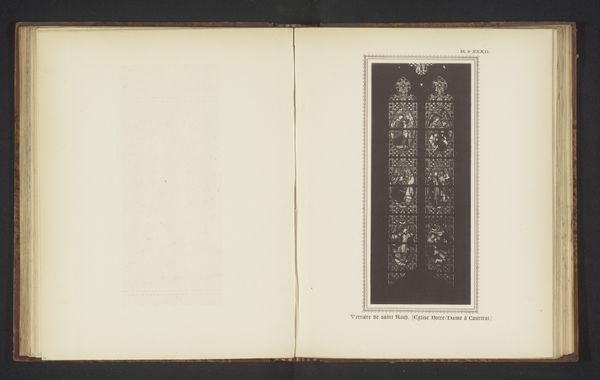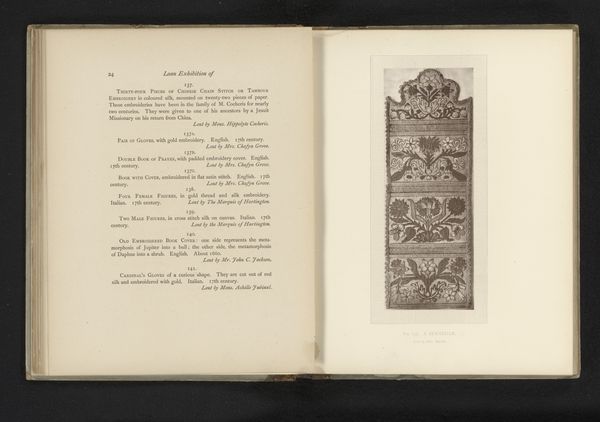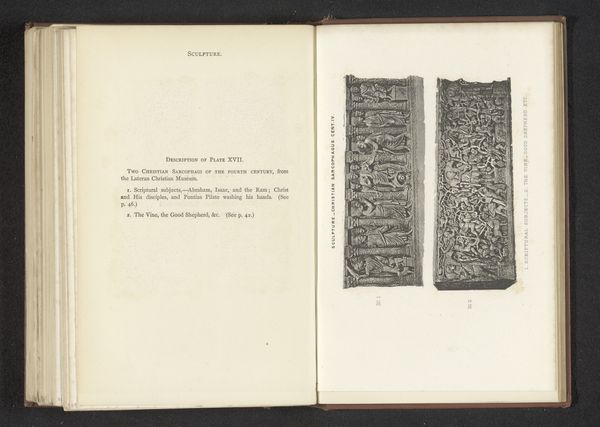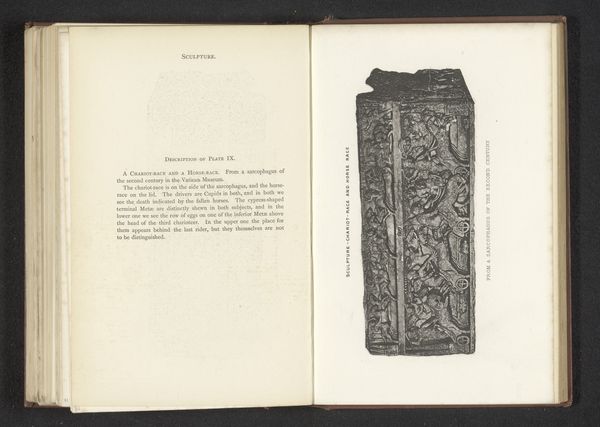
print, relief, sculpture, engraving
#
narrative-art
# print
#
relief
#
figuration
#
ancient-mediterranean
#
sculpture
#
history-painting
#
early-renaissance
#
engraving
Dimensions: height 91 mm, width 182 mm
Copyright: Rijks Museum: Open Domain
This relief comes from the Sarcophagus of Junius Bassus, an early Christian artwork dating back to around 359 AD, made by an anonymous Roman artist. It is carved from marble, a material prized in antiquity for its pure whiteness, fine grain, and ability to take a high polish. Its inherent qualities of permanence and refinement made it ideal for funerary monuments. Crafting this relief required skilled stone carvers using tools like chisels, gouges, and drills to meticulously remove material. The technique demanded immense labor and expertise. The high relief creates a play of light and shadow, adding depth to the scenes depicted. The division into compartments suggests a carefully planned program, telling biblical stories with an emphasis on order and symmetry. The use of marble and the carving technique would have conveyed status and wealth. This commission also reflects a complex interplay between artistic skill, social context, and the patron's desire for a lasting statement of belief. In understanding this sculpture, it's crucial to consider the labor, materials, and context involved. These all challenge traditional distinctions between craft and fine art.
Comments
No comments
Be the first to comment and join the conversation on the ultimate creative platform.
